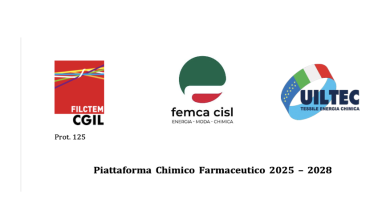
As we have seen, policies in favor of, for example, generic medicines risk in many cases depriving healthcare operators of responsibility, with risks associated with the safety of therapies and the health of citizens. At risk the autonomy of doctors and the freedom of patients in an attempt to limit pharmaceutical expenditure.
 Recent attempts to balance health protection and pharmaceutical spending once again highlight the growing unsustainability of the NHS
Recent attempts to balance health protection and pharmaceutical spending once again highlight the growing unsustainability of the NHS
The proposal by the Conference of the Regions to introduce a form of patrimonial liability for doctors in the National Health Service who prescribe treatments deemed unnecessary - or in any case "inappropriate" - by the regions themselves and the local health authorities is only the latest example of a dangerous trend which, for several years, has jeopardized the autonomy of doctors and the freedom of patients in an attempt to limit pharmaceutical expenditure.
 In the paper "Drugs and regional spending: the health account" (PDF), James Lev Mannheimer, Fellow of the Bruno Leoni Institute, wonders precisely "whether the recent national and regional pharmaceutical policies which understandably seek to limit public health costs risk compromising the adequate implementation of the universal principle of the right to treatment" or are they actually functional to exclusively determine a reduction in pharmaceutical expenditure.
In the paper "Drugs and regional spending: the health account" (PDF), James Lev Mannheimer, Fellow of the Bruno Leoni Institute, wonders precisely "whether the recent national and regional pharmaceutical policies which understandably seek to limit public health costs risk compromising the adequate implementation of the universal principle of the right to treatment" or are they actually functional to exclusively determine a reduction in pharmaceutical expenditure.
“Undoubtedly – continues the author – balancing the aforementioned interests is not easy to achieve. In this sense, it must be taken into consideration that greater resources saved by the regions on the cost of healthcare do not necessarily correspond to greater resources for citizens, but instead risk taking the form of sums of public money reused by the regions for purposes whose opportunity should at least be evaluated previously, from a cost-benefit perspective, with respect to pharmaceutical expenditure.
In general, however, the orientation that the (national and regional) legislator should adopt with regard to pharmaceutical policy should be as detached as possible from the substantive choices of citizens. With the same cost for public coffers, the use of branded or generic drugs, as well as the choice of NHS or affiliated doctors, should therefore correspond to the different and specific cases and sensitivities of individual patients. And this is all the more reason since, as we have seen, the policies in favor of, for example, generic medicines risk in many cases depriving healthcare operators of responsibility, with risks linked to the
safety of therapies and the health of citizens.”
The paper "Drugs and regional spending: the health bill", by Giacomo Lev Mannheimer, is freely available here (PDF).
– See more at: http://www.brunoleoni.it/nextpage.aspx?codice=16787#sthash.nxoWqMnP.dpuf
Related news: Healthcare maneuver. Istituto Bruno Leoni: “Penalize the prescribing doctor? Latest example of a system in trouble.
Ministry recipe. The side effects of the new regulation of prescriptions





